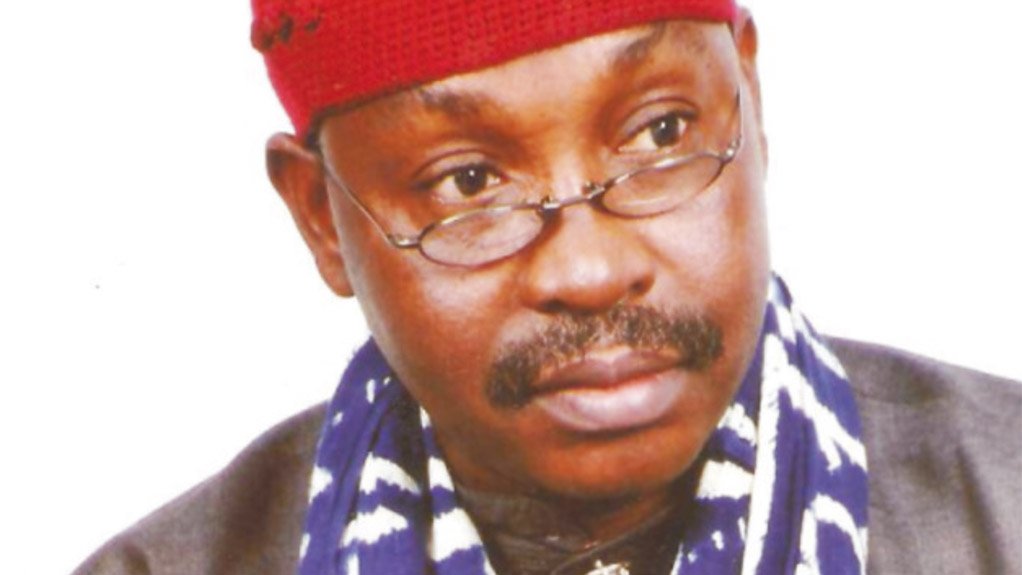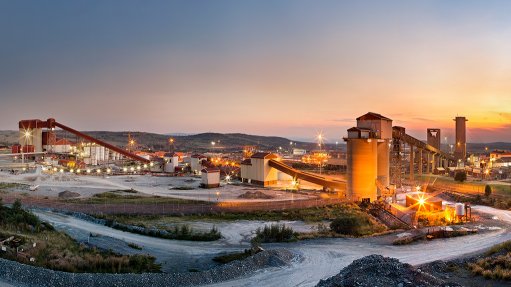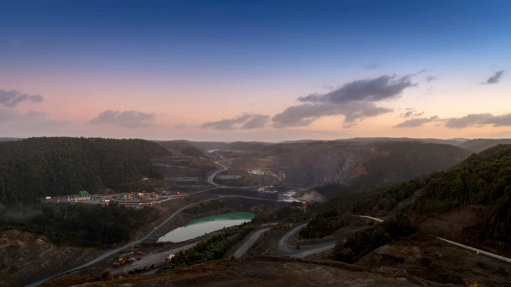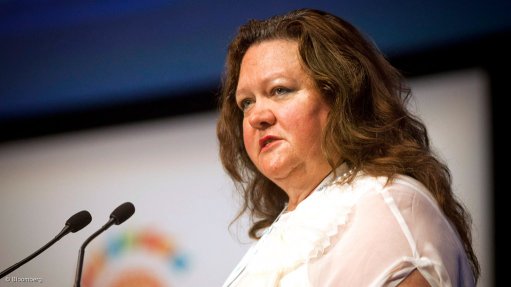PwC to partner two bodies in leading efforts to help Nigeria unlock $100bn from natural resources sector



ORJI OGBONNAYA ORJI It is important to pursue an inclusive collaborative effort that will shift attention to unlock the potential in Nigeria’s solid minerals sector
BEKEME MASADE The working group is “the most critical” aspect of the fourth Sustainability in the Extractive Industries conference
Nigerian business and ethical networking platform and consultancy for sustainability CSR-in-Action, the Nigerian Extractive Industries Transparency Initiative (NEITI) and advisory firm PwC will co-chair a working group to assist Nigeria in sustainably unlocking about $100-billion in value a year from its natural resources sector.
The Nigerian Ministry of Solid Minerals has also pledged to support the activities of the group.
This was resolved during the fourth Sustainability in the Extractive Industries (SITEI) conference, which was held last month in Abuja, Nigeria.
The conference was organised by CSR-in-Action in partnership with NEITI – the Nigerian government chapter of the global Extractive Industries Transparency Initiative – and played host to the Minister of State for Solid Minerals, Abubakar Bawa Bwari.
Over the years, SITEI has provided a platform for progressive thinkers and thought leaders to discuss pertinent issues that affect the extractive industries in Nigeria and, ultimately, the economy, and this year was no different.
Key stakeholders came together to discuss the “boundless”, yet untapped, potential that evidently lies in these industries, particularly with regard to the country’s abundance of mineral resources. This is in a bid to proffer actionable solutions in line with the conference’s theme of ‘Unlocking the Hidden Potential in the Extractive Industries’.
The resulting communique from deliberations was read out to all stakeholders at the end of the conference and highlighted major issues as itemised by both panellists and delegates.
The communique noted that Nigeria had the manpower to foster growth in the mining sector as it possessed more than 20 000 geologists. It also highlighted that there was “real interest” from the private sector and foreign investors to develop the industry. However, the communique pointed out that “so little has been done so far”.
Some of the problems hampering the development of the mining sector thus identified and included issues such as political uncertainty, which is characteristic of the current Nigerian political landscape, where political change comes with a complete overhaul in policies; a lack of incentives to encourage the private sector where they are crippled by a disabling economic environment; insufficient and poor data to give confidence to reliable investment, which could be attributed to the continued and complete neglect of the mining sector over the years; and the limited access to capital, which is significant as companies have to consider the long wait for a return on investment.
Additionally, issues such as mining site inaccessibility, owing to the poor infrastructure that affects many other industries, and a lack of resources required to add value to mined minerals before exportation, placing Nigeria under the same constraint as its oil industry where the unrefined product is exported and the refined product is once again imported at “exorbitant rates”, were noted.
The contributors highlighted some key recommendations to harness the potential in the mining sector, including the need for the immediate development of mining ports across the country; increased accessibility and awareness of the funds available to the extractive industries; and the development and enforcement of a legal, regulatory and investment-friendly framework that supports the private sector and will encourage foreign investment.
Additional recommendations included the need for aggressive data collection, analysis and dissemination to showcase the opportunities in the sector; increased efforts to promote accountability through a transparent reporting process driven by institutions such as NEITI; the need to readdress the existence of mineral resources on the exclusive list, which poses the question of the efficacy of resource control over the derivation principle; and the designing of an inclusive Environmental Impact Assessment Act to take care of host communities.
“The process has painstakingly captured the views of speakers and delegates, and a working group will be immediately set up to synthesise the recommendations and propagate key actionable solutions. We eagerly look forward to presenting a progress report at the conference next year,” said PwC director Amos Gagar.
Further, NEITI acting executive secretary Dr Orji Ogbonnaya Orji said during his presentation that it was important to pursue an inclusive, collaborative effort that shifts attention to unlocking the potential in Nigeria’s solid minerals sector.
He also advocated collaboration between the legislature, civil society, companies and government to deliver better governance and reform for the extractive sector.
CSR-in-Action CE Bekeme Masade stated that the working group was “the most critical” aspect of SITEI.
“As with every conference, the tangible actionable outcomes form the basis of engagement to achieve tangible results between now and the next conference, and we are more than ready to hit the ground running,” she concluded.
Comments
Press Office
Announcements
What's On
Subscribe to improve your user experience...
Option 1 (equivalent of R125 a month):
Receive a weekly copy of Creamer Media's Engineering News & Mining Weekly magazine
(print copy for those in South Africa and e-magazine for those outside of South Africa)
Receive daily email newsletters
Access to full search results
Access archive of magazine back copies
Access to Projects in Progress
Access to ONE Research Report of your choice in PDF format
Option 2 (equivalent of R375 a month):
All benefits from Option 1
PLUS
Access to Creamer Media's Research Channel Africa for ALL Research Reports, in PDF format, on various industrial and mining sectors
including Electricity; Water; Energy Transition; Hydrogen; Roads, Rail and Ports; Coal; Gold; Platinum; Battery Metals; etc.
Already a subscriber?
Forgotten your password?
Receive weekly copy of Creamer Media's Engineering News & Mining Weekly magazine (print copy for those in South Africa and e-magazine for those outside of South Africa)
➕
Recieve daily email newsletters
➕
Access to full search results
➕
Access archive of magazine back copies
➕
Access to Projects in Progress
➕
Access to ONE Research Report of your choice in PDF format
RESEARCH CHANNEL AFRICA
R4500 (equivalent of R375 a month)
SUBSCRIBEAll benefits from Option 1
➕
Access to Creamer Media's Research Channel Africa for ALL Research Reports on various industrial and mining sectors, in PDF format, including on:
Electricity
➕
Water
➕
Energy Transition
➕
Hydrogen
➕
Roads, Rail and Ports
➕
Coal
➕
Gold
➕
Platinum
➕
Battery Metals
➕
etc.
Receive all benefits from Option 1 or Option 2 delivered to numerous people at your company
➕
Multiple User names and Passwords for simultaneous log-ins
➕
Intranet integration access to all in your organisation




















